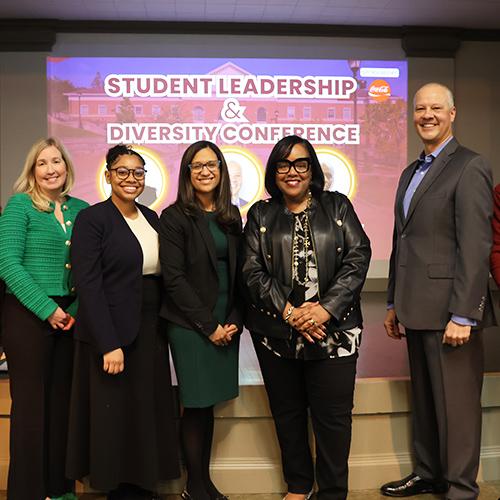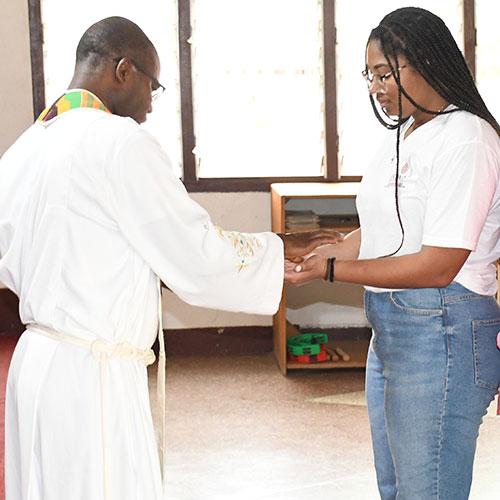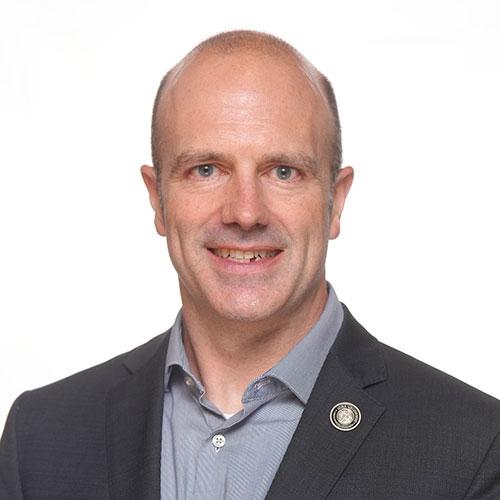Guide to Graduate Schools
Many students consider attending graduate school when they graduate from Iona University. To be successful in graduate school, you must know your career goals and be attending for the right reasons.
The best reason to enroll in graduate school is that you love a particular subject and want to further your studies or because you need an advanced degree in order to enter or move up in your profession of choice.
If you are planning to avoid the “real world” or you do not want to commit to your job search, then perhaps grad school may not be the best option for you.
Whatever your motive to attend grad school may be, you want to make sure how that degree is going to affect your future. Will the degree prepare you for a specific field? If so, what it the occupational outlook? You may want to think about asking questions to professors and professionals in the field about whether or not pursuing higher education is the correct decision.
Graduate School Resources
- Kaplan Test Preparation
- Princeton Review
- Graduate Record Examinations (GRE)
- Law School Admission Council (LSAT)
- Graduate Management Admission Council (GMAT)
- Association of American Medical Colleges (MCAT)
- National Teachers Exam (NTE)
- Educational Testing Services (ETS)
- Certified Nursing Assistant Classes
What do you need to apply to graduate school?
Every school and each program has different requirements. It is very important you check the Graduate Admissions page of each school you are interested in applying for.
Common requirements that are part of the application process:
- Online application
- Graduate Tests (MCAT, LSAT)
- Undergraduate Transcripts
- Personal Statement
- Recommendation Letters
- Résumé
If you have any questions about the graduate school application process, make an appointment with a Career Coach!
Spring/Summer Before Applying
- Browse through graduate school guides. After selecting schools which you are interested in, do your research and carefully read through all materials and make note of deadlines.
- Start the first draft of your personal statement.
- Sign up for standardized tests (GRE, GMAT, LSAT, MCAT)
September
- Contact professors or employers and let them know of your plans to apply to graduate school. Request a letter of recommendation and provide them with a résumé outlining all your current activities, work experiences and accomplishments. In addition, do not forget to give recommenders any special reference forms provided by the university. Thoroughly discuss how forms/letters should be sent when they are complete.
- Request official transcripts from all previous undergraduate institutions attended. Keep in mind that some schools request multiple copies so make sure to order enough transcripts.
- Continue writing your personal statement.
October
- Take standardized tests.
- Get personal statement proofread and revise as needed.
- Complete application forms.
November
- Send professors/employers a friendly reminder regarding letters of recommendation.
- Complete final draft of your personal statement.
- Prepare and complete final copy of application forms and materials.
December
- Make sure letters of recommendation are complete and have been sent to proper recipients.
- Review all application materials and make sure all necessary documents are enclosed.
January/February
- Verify that all your applications were received and are complete.
- Contact programs to which you applied and inquire about visiting.
- Obtain all necessary financial aid forms and research possible scholarships/fellowships.
A graduate school résumé is a document that accompanies your entrance application to a college/university. It provides the admissions committee with more information than what’s included in the application and focuses on what they need to know to better evaluate your candidacy.
This résumé is different than the job search résumé. Job search résumés are designed to get you an interview; graduate school résumés are designed to enhance your application to a school and provide yet another opportunity to sell yourself.
It is similar to your job search résumé in the following ways:
- Crisp language – use action verbs to describe your experiences
- Clean layout – use lots of “white space” so that it is easy to read
- No mistakes – no typos, no grammatical errors
It is different from your job search résumé in the following ways:
- Separates your work and non‐work experiences into different sections
- Include all your experiences – not just the ones targeting a specific job
- Indicates amount of time (per week, month) you’ve committed to different experiences
- References your education but does not provide complete information – that will come from your transcript
Your graduate school résumé may include different categories than your friend’s. That’s because your experiences will be different. The sections you choose to include and the order in which you choose to list them should be strategic on your part. What do you want the admissions committee to pay the most attention to?
A personal statement is a general statement about why you are interested in a particular program and what is important about your background, goals, and preparation. Students find it difficult to write personal statements because there may not be a clear prompt to write about. An effective personal statement conveys how your background and experiences have shaped your career goals and how you are well matched to your chosen path.
Once you have written your personal statement, make sure to have it reviewed by a member of the Career Development staff or even a professor/adviser. You do not want any typos as it is a reflection of you and why you want to continue your education.
The best way to get recommendation letters is to ask your professors early to ensure they will have enough time to think about what they wish to say in the letter. Contact professors with whom you have a positive relationship, or for classes in which you actively participated.
Provide necessary information and materials so they will be informed of your future career plans in relation to specific graduate programs you are considering.


